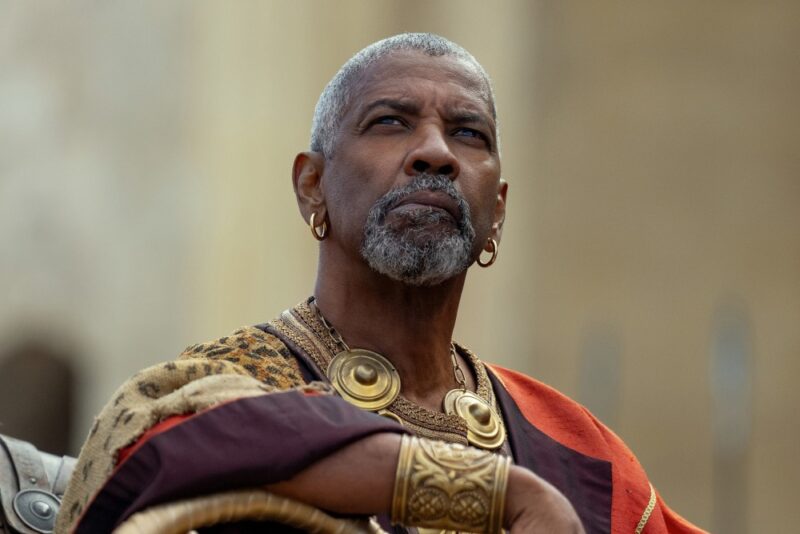Denzel Washington commands ancient Rome and movie theaters with ‘Gladiator II’
Share
Explore Our Galleries
Breaking News!
Today's news and culture by Black and other reporters in the Black and mainstream media.
Ways to Support ABHM?
Ronda Racha Penrice, NBC News

The biggest surprise of “Gladiator II” is not that Denzel Washingtonis great. Instead, it’s how pivotal his character Macrinus is to the long-awaited sequel starring Paul Mescal as the heir of Russell Crowe’s iconic character Maximus.
The sequel revolves around Mescal’s character stepping into his destiny as Lucius, the son of a great warrior and grandson of an emperor. But it’s Washington’s Macrinus who moves “Gladiator II” forward.
Far more than a mere villain, Macrinus is a saboteur and opportunist in this Roman Empire epic, where those taken as slaves are forced to fight in an arena before an audience with a grim outcome: kill or be killed.
“His grand purpose,” Washington told NBC News, “is to take over the world.”
To read more, click here!
See how black culture stem from our past.
Our Breaking News section has more Black culture and entertainment articles.









Comments Are Welcome
Note: We moderate submissions in order to create a space for meaningful dialogue, a space where museum visitors – adults and youth –– can exchange informed, thoughtful, and relevant comments that add value to our exhibits.
Racial slurs, personal attacks, obscenity, profanity, and SHOUTING do not meet the above standard. Such comments are posted in the exhibit Hateful Speech. Commercial promotions, impersonations, and incoherent comments likewise fail to meet our goals, so will not be posted. Submissions longer than 120 words will be shortened.
See our full Comments Policy here.